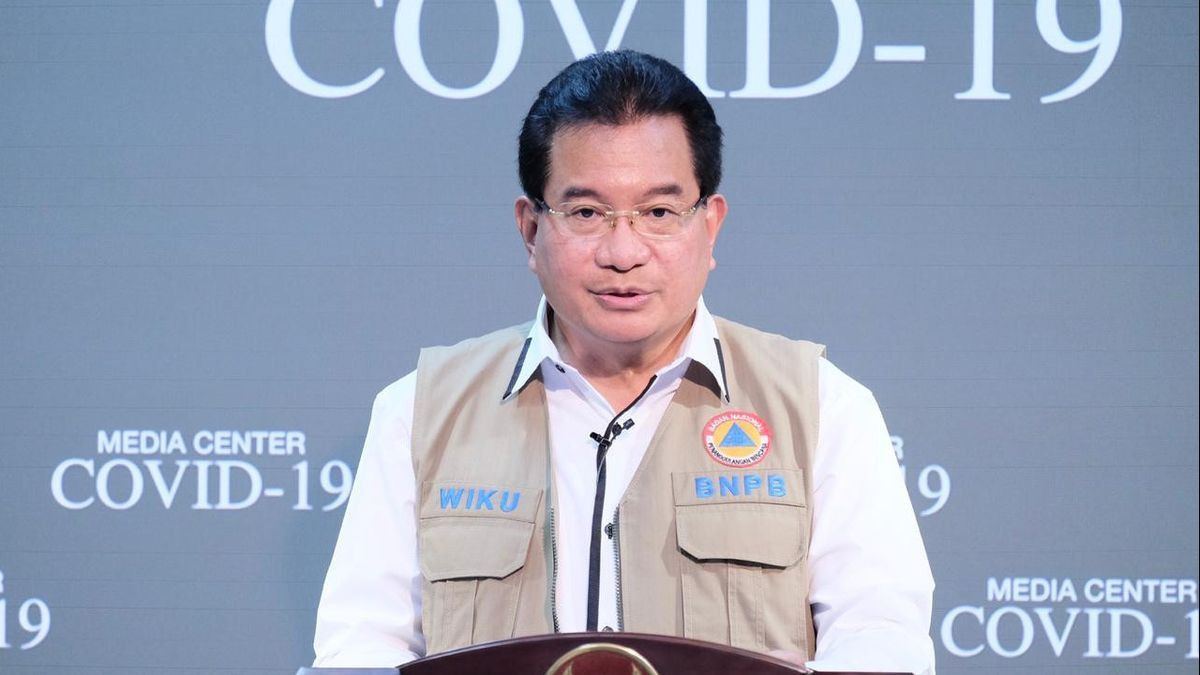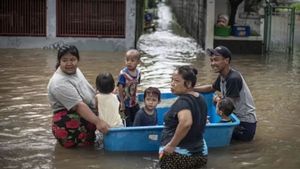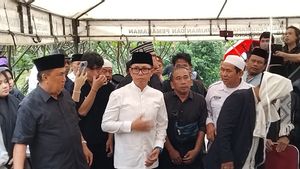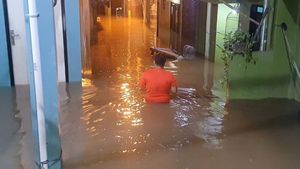JAKARTA - The Task Force for Handling COVID-19 assessed that the implementation of restrictions on community activities (PPKM) has not achieved maximum results even though there has been a decrease in the level of hospital filling and active cases.
This was conveyed by the Spokesperson for the COVID-19 Task Force Wiku Adisasmito when describing the evaluation of the implementation of the PPKM which has been running in two stages from January to February.
"So the PPKM which has been carried out in two stages has not shown big results, but that there has been improvement, yes," Wiku said in a press conference broadcast on the BNPB YouTube account, Monday, February 8.
The improvements that have occurred are related to a decrease in the filling of hospital beds. Even so, he did not deny, the decrease in the level of occupancy in the isolation room and the intensive care unit (ICU) was also supported by the addition made by the government.
"In addition, the number of positive cases has also started to decline, although it is not large," he said.
"Therefore, as an evaluation, we must ensure that the implementation of PPKM in Java and Bali must be more enforced in relation to community discipline in implementing health protocols," added Wiku.
In line with Wiku, Spokesperson for the Ministry of Health (Kemenkes) Siti Nadia Tarmizi also explained that there had been a decrease in COVID-19 cases over the past few days, although not so significantly. In addition, he also said that cases of recovered COVID-19 patients had also increased at this time.
"If we talk about reducing cases, we can only feel the impact of the decline in cases from the records in the last four or five days. We can see, the number of cases, especially deaths, we usually get between 200-350 but now the death rate is 150," he explained. in the same activity.
"This means that we see that in general the number of positive cases of COVID-19 has not seen a significant decrease," he added.
It is known that the government has implemented the Java and Bali PPKM in two stages. The first stage runs from 11 to 25 January and the second from 26 January to 8 February.
Furthermore, the government will implement PPKM on a micro scale by taking into account the criteria for the control zone area up to the RT and RW levels. Regions that will implement this micro PPKM are regions in 7 provinces that have implemented PPKM previously. The zoning criteria in question are divided into green zones, yellow zones, orange zones, and red zones.
Micro PPKM is carried out through the coordination of all elements, starting from the head of RT / RW, village / lurag head, Satlinmas, Babinsa, Bhabinkamtibnas, Satpol PP, PKK, Posyandu, Dasawisma, community leaders, traditional leaders, religious leaders, youth leaders, extension agents, staff health, youth organizations, and other volunteers.
The coordination, monitoring and evacuation mechanism of the micro PPKM is carried out by establishing village and family level command posts (posko). For supervision and reporting of village and sub-district posts, sub-district posts were formed. Apart from implementing micro PPKM, PPKM at provincial and district / city scale are still running as before.
The English, Chinese, Japanese, Arabic, and French versions are automatically generated by the AI. So there may still be inaccuracies in translating, please always see Indonesian as our main language. (system supported by DigitalSiber.id)













